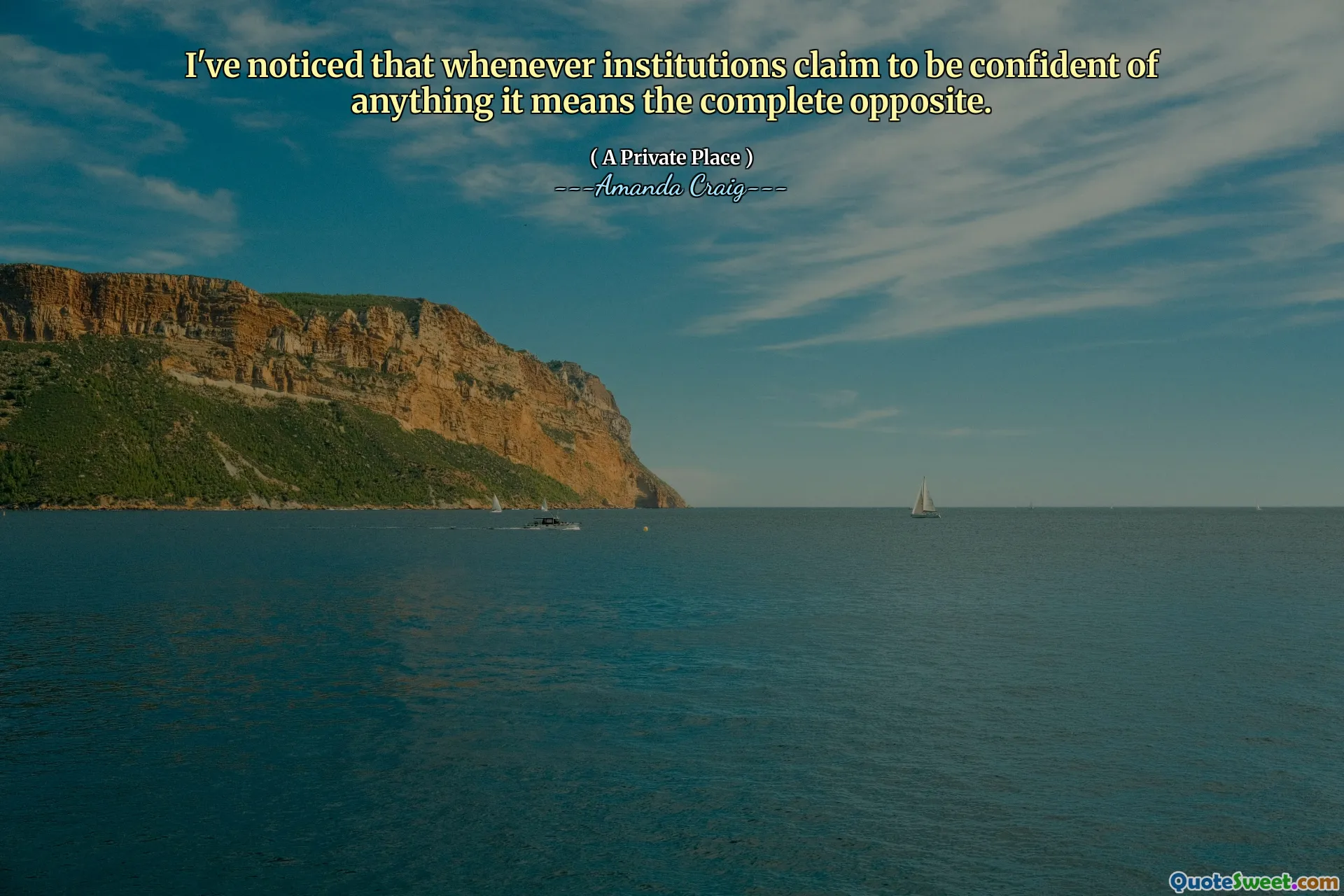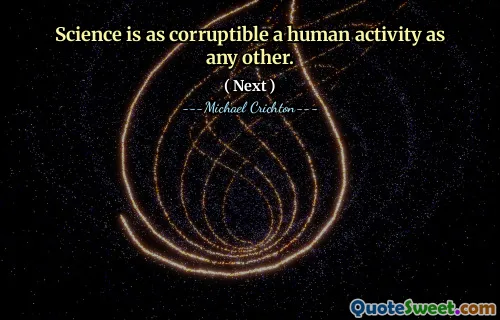
I've noticed that whenever institutions claim to be confident of anything it means the complete opposite.
This quote highlights a paradoxical aspect of institutional behavior and human psychology. Often, when organizations or authorities express unwavering confidence, it may serve as a façade to mask uncertainty or internal doubt. Such statements can be motivated by a desire to project strength and stability, which are essential for maintaining public trust and authority. However, beneath this veneer, there may be a significant lack of conviction or conflicting information. This phenomenon reminds us to be cautious of taking at face value the assertions of power structures, recognizing that confidence from institutions doesn't always equate to truth or certainty.
From a broader perspective, this skepticism fosters critical thinking, urging individuals to question the motives and evidences behind proclaimed facts. It encourages a recognition that certainty can sometimes be manufactured or strategically presented to influence opinion or, in some cases, cover up deficiencies. Historically, many instances show that overly confident assertions by institutions—be it governments, corporations, or scientific bodies—have concealed underlying issues or led to disastrous outcomes once such claims were proven false.
In our pursuit of understanding complex systems or phenomena, acknowledging the inherent uncertainty and ambiguity is vital. It helps cultivate humility and openness to new evidence, rather than rigid adherence to dogma. This quote invites us to reflect on the importance of honesty about what is truly known and to be wary of appearances—apprehensive about accepting confidence as a sign of knowledge, especially when it often signals the opposite.
Considering the context of 'A Private Place' by Amanda Craig, the themes of trust, human nature, and the hidden depths of individuals and institutions resonate strongly. It serves as a reminder that beneath the surface of apparent confidence, there may be vulnerability and doubt, and recognizing this complexity enhances our understanding of human relationships and societal structures.


